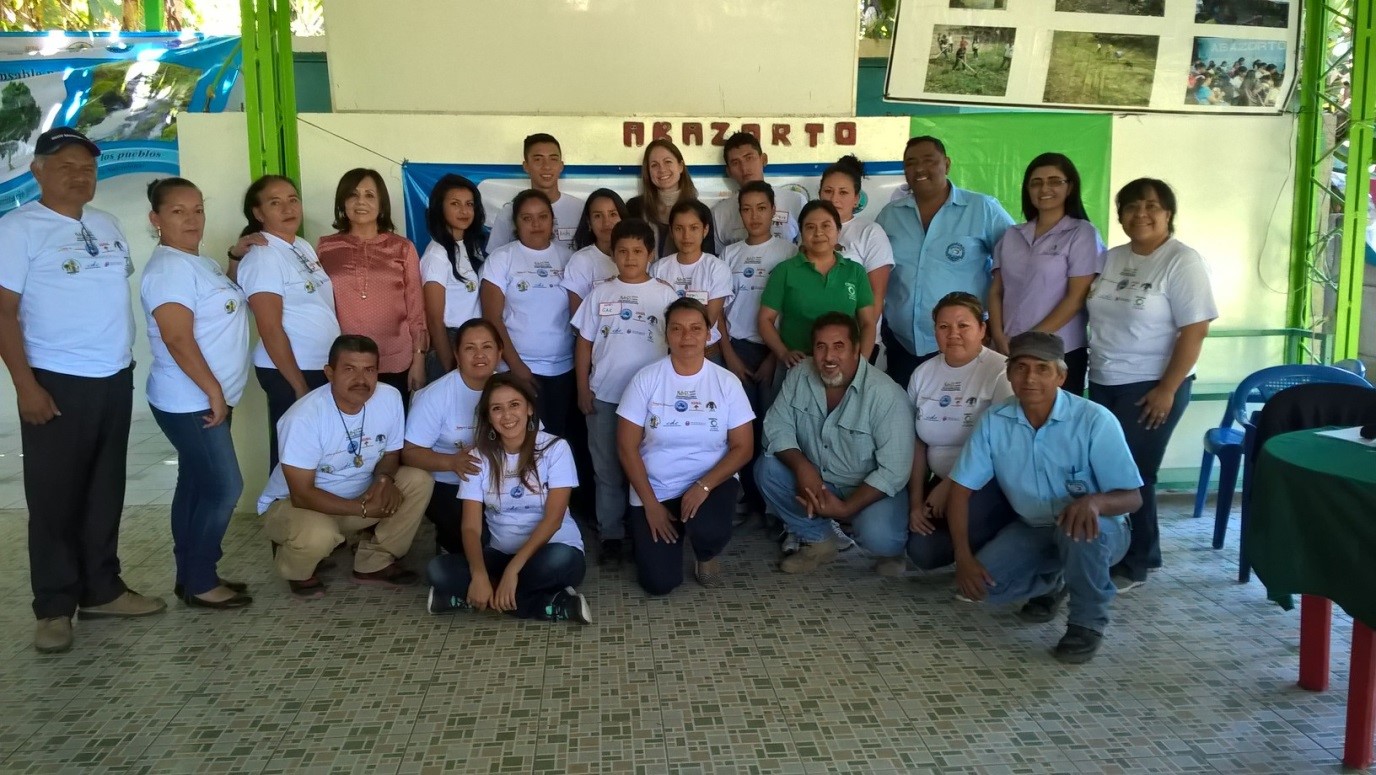Reflections from my grass roots mission to El Salvador
Dr. Claire Blanchard, Civil Society Network Coordinator, reflects on her mission to El Salvador, 2016
Returning from my field visit to NUTRES (Alianza de las Organizaciones de la Sociedad Civil por la Soberanía y Seguridad Alimentaria Nutricional), the SUN CSA in El Salvador hosted by CALMA (Centro de Apoyo de Lactencia Materna) – a local CSO working on breastfeeding, I wanted to share my invaluable experience of an engaged, dedicated and committed alliance of 7 grassroots organisations.
About the author: Dr. Claire Blanchard, Civil Society Network Coordinator, reflects on her mission to El Salvador, 2016

Meeting with youth of the Tonacatepeque area, ABAZORTE programme, member of NUTRES (SUN CSA in El Salvador), 19 February 2016 © CALMA for NUTRES
Returning from my field visit to NUTRES (Alianza de las Organizaciones de la Sociedad Civil por la Soberanía y Seguridad Alimentaria Nutricional), the SUN CSA in El Salvador hosted by CALMA (Centro de Apoyo de Lactencia Materna) – a local CSO working on breastfeeding, I wanted to share my invaluable experience of an engaged, dedicated and committed alliance of 7 grassroots organisations.
El Salvador is a small, densely populated country suffering from corruption, drug trafficking and a level of violence that defines everything.
Armed private security employees and police are everywhere in the streets of San Salvador reminding us of the constant security risk and huge issue of violence. El Salvador has one of the highest murder rates in the world – over a 1000 deaths were reported in the first six weeks of the year, with 70-80% of the victims being young people.
My visit to Tonacatepeque was an eye-opener and emotionally charged. I was fortunate enough to meet some 25 children, adolescents and young adults from three communities (San Isidro, Cabana and Tonacatepeque). It was moving to hear from children whose lives are dominated by poverty. The extreme violence it engenders is the biggest barrier preventing them from accessing education, food and, simply, the right to develop, be happy and play. The mining industry exploits this community, as it does many others across the country. Truly, this is a reality that should no longer exist in our world and yet it prevails in far too many countries. In spite of this, it was striking and heart-warming to see these young people striving to make the community a better place.
The ABAZORTE programme we visited gives hope to many young people, who are often orphans or from single parent households. Disintegrated families are an every-day reality here due to poverty and crime. The programme provides a support system, giving children opportunities to play football, to go to school and use community gardens – it teaches them that there is an alternative to violence that they are able to choose.
The testimonies we heard were humbling and it was sometimes hard not to cry:
- 25 year old Enrique shared his experience as a football coach and mentor. He told us: “I see this as a service to my community and at the same time it helps us all learn about nutrition as we are ill informed. Through this programme, I am able to teach kids to live a full and happy life. We need to be able to have free and local access to education (from primary all the way to university level) to be able to get out of this cycle of poverty. Out of 30 school kids, just three will go on to university. We need the government to invest more in this area. As young people, we need to engage as future leaders and stewards of this planet.”
- a 12 year old boy, Cal, shared his experience of working in environmental projects to fight deforestation and to recycle rubbish for use in community gardens. He said: “we create families through this effort”
- 17 year old Andy shared his experience of violence. “One day I was coming back from school on my bike and a group of kids just beat me up – they were kids I knew and that knew me.”
- Isabella, a 17 year old girl responded: “I do not judge those that resort to violence. It was a way out for them, a way to survive. We have no education, no jobs, no future, no dreams, no play opportunities. ABAZORTE helps us make dreams a reality”
The programme focuses on giving young people nutrition education, support systems, guidance on environmental preservation, mentoring and training so they can find work and have an income. It teaches kids to cultivate the land. Its impact ripples out to other parts of the community, including parents, teachers and other kids.
The youth group hope that NUTRES and ABAZORTE, as a member of NUTRES, can help bring their voice to decision makers. The young people are calling for:
- governments (national and local) to invest more in free and decentralised access to education up to university level, bursaries to support students, and well as innovative solutions such as distance-based learning with local mentoring
- free access to play spaces and recreational areas
- advocacy for their right to education, food and nutrition, land, water
- for MPs to take field trips to find out about how young people live
- to develop processes that support youth engagement
The visit to ABAZORTE was a moving experience and an important reminder of the importance of supporting the participation of young people in poor communities.
As a movement we need to make sure tomorrow’s leaders can shape their world today and as SUN CSN we will try to find ways to engage young people in advocacy to influence decisions that affect their lives.